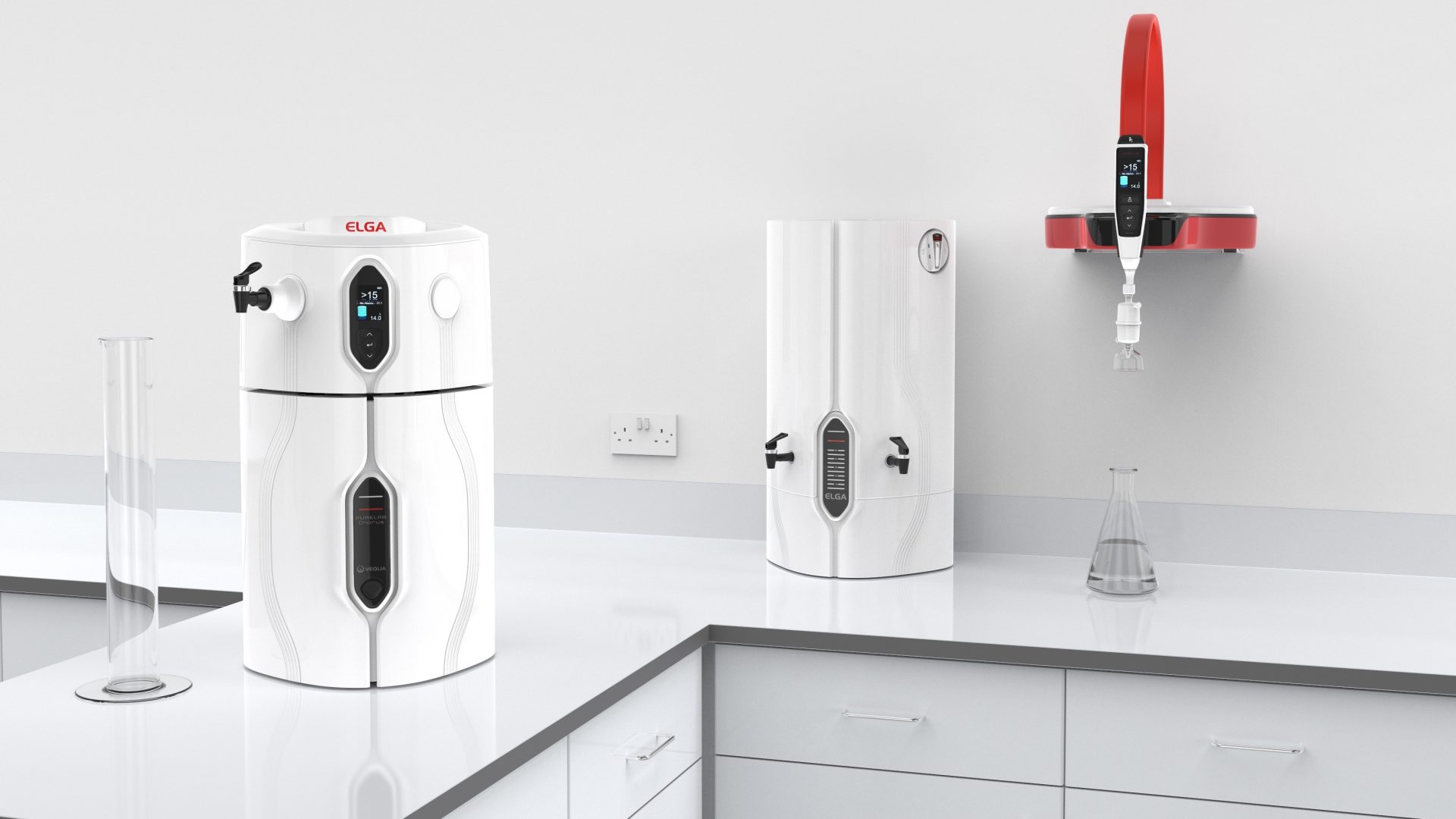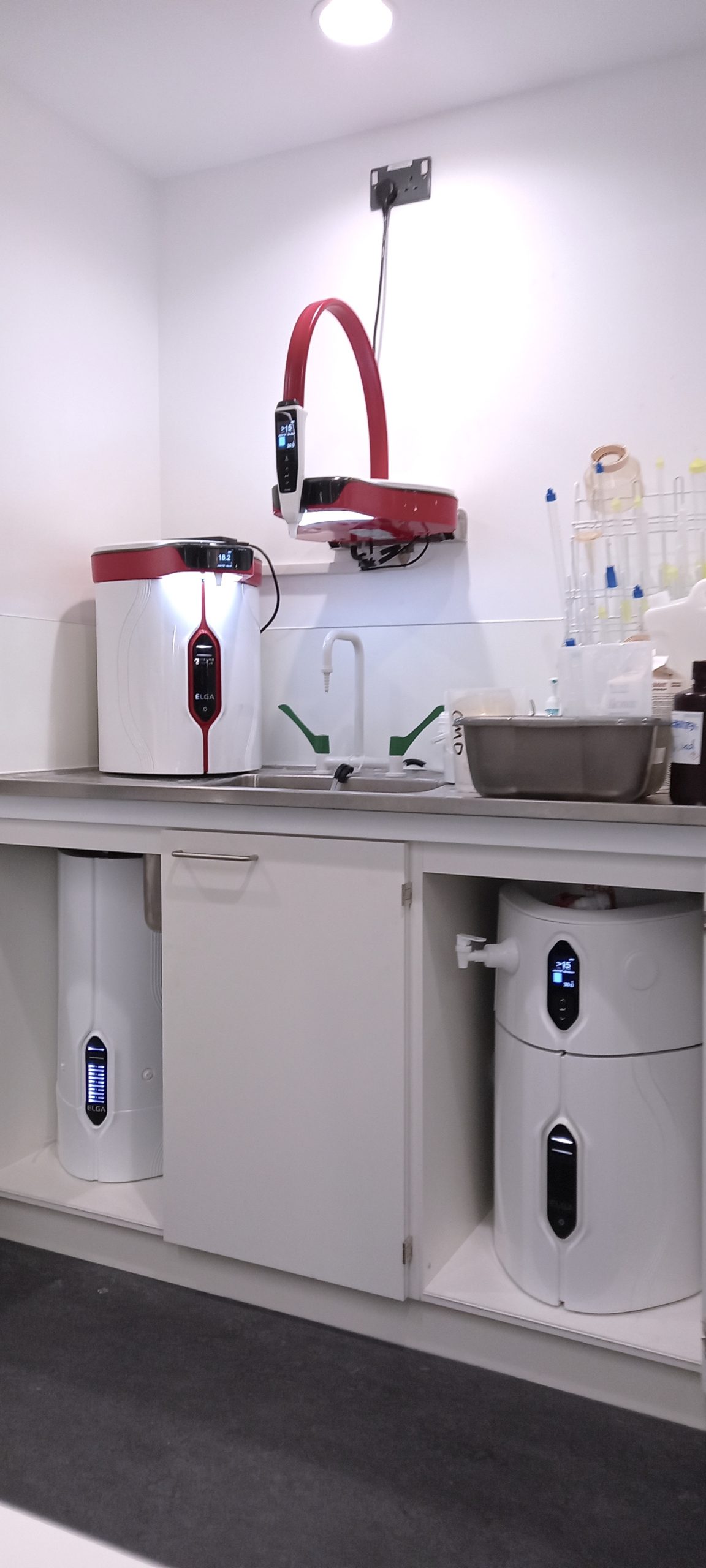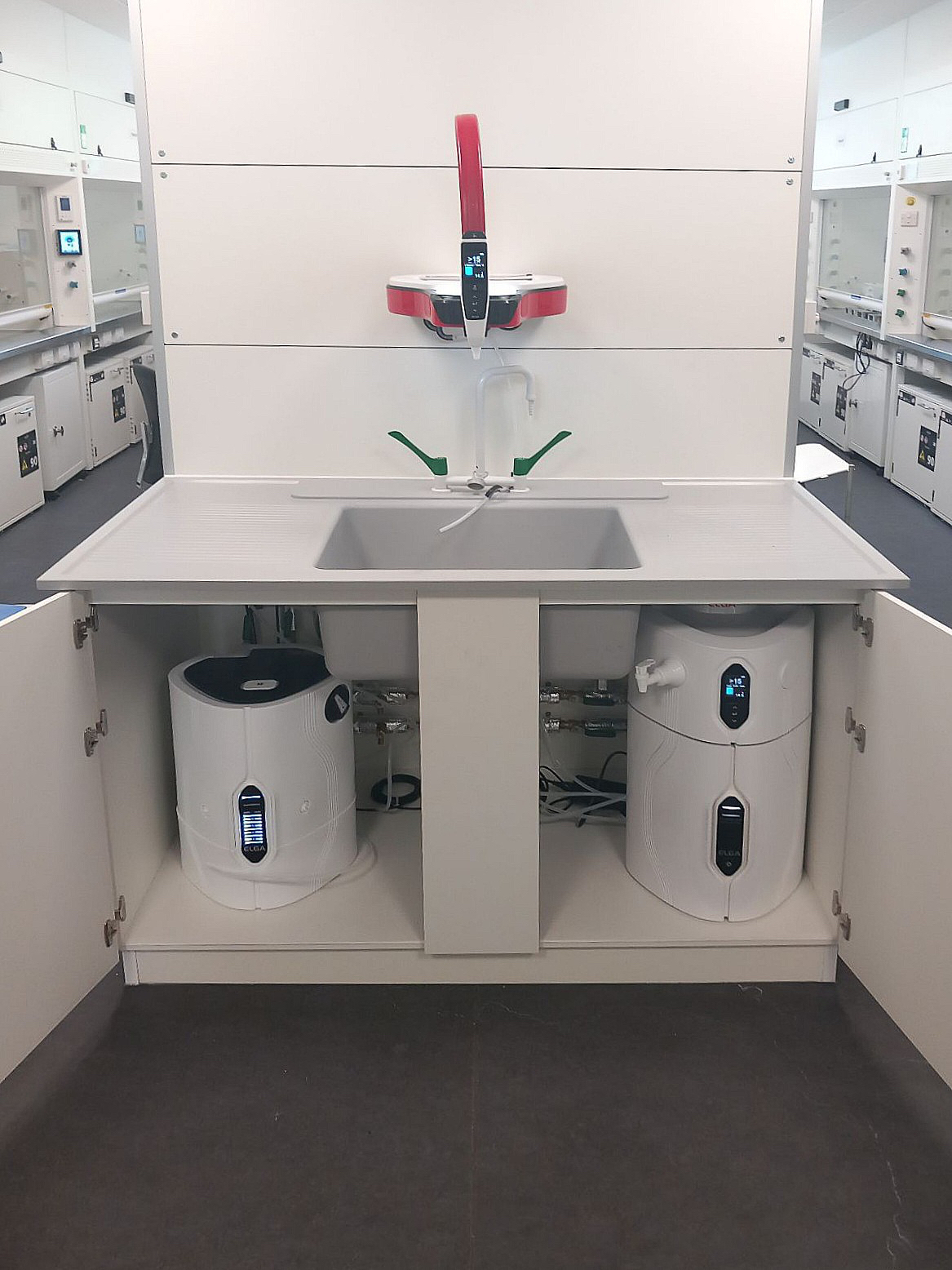Veolia Water Technologies recently provided lab purification solutions to facilitate the life-saving work carried out by a prestigious University-based research institution. Through early engagement, the Veolia Water Technologies team were able to integrate their solutions within a highly bespoke lab design.
Upgrading laboratory facilities in a cutting-edge research institution, which is dedicated to advancing the diagnosis, prevention and treatment of disease, unsurprisingly comes with complex considerations and rigorous requirements. A reliable supply of pure water is vital for most lab work, but choosing the right purification system can be complicated. An optimal solution must take into account the scientific application, lab ergonomics and work patterns.
This was the task set by the research institution; an organisation working across major clinical disciplines including infectious diseases, cancer, vaccinology, gastroenterology, as well as respiratory and renal medicine.
The institution’s scientists and laboratory workers require various points of access to a pure water supply to carry out tissue culture and mass spectrometry. From Type II+ water for analytical work, to ultrapure water for cutting-edge applications, pure water is fundamental in helping to mitigate contamination, which can impact the accuracy of test results as well as sample viability.
The customer urgently required an upgrade to their existing pure water infrastructure using a limited amount of bench space. Veolia Water Technologies began by undertaking a series of workshops and site visits to help identify the most appropriate and cost-effective replacement. Having previously supplied water to the institution’s laboratories, Veolia Water Technologies already had an established relationship with the organisation, and therefore an understanding of its needs.
The University in question has a philosophy document against drilling holes in benchtops, which all contractors must observe. Moreover, bench space in the labs is extremely limited, therefore, all products specified would need to be integrated into cupboards, whilst ensuring ease of maintenance and adequate flow rates through recirculating systems.
Working closely with the institution from the very start of the specification process enabled Veolia Water Technologies to develop customised layouts. As a result, the following purification technologies were specified:
- Three PURELAB® Chorus 2+ RO/DI/UV Type 2 laboratory water purifiers
- One PURELAB® Chorus 1 Life Science ultrapure laboratory water polisher
- Four wall-mounted Halo Flexible dispensers and one integrated Halo Advanced dispenser.
This combination of technologies works specifically for sensitive analytical and life science applications, to provide optimal protection against organics and bacteria. Patented recirculating DI technology provides a constant supply of high-purity water that guarantees a minimum of 15 MΩ.cm at all times. Veolia Water Technologies’ flexible and modular Chorus platform delivers a cost-effective solution for a laboratory requiring high output volumes with minimal footprint. It can also adapt to meet growing requirements.
Other key features include:
- Integrated filtration to prevent the ingress of airborne bacteria, particulates, organic vapours, and CO2.
- Reduced maintenance times for quick and easy replacement of consumables.
- Data capture via USB for system performance, validation, and software updates.
- Compatibility with three different Halo Dispense solutions, allowing additional take-off points even in adjacent labs.
“Each area of the lab has a unique set-up where water purity and volume were agreed with the client, whilst positioning and tube routing were specified with the lab design and fit-out contractors,” explained Etienne Arman, Scientific Area Sales Manager at Veolia Water Technologies.
Veolia Water Technologies worked with the institution’s lab design partner to integrate their laboratory water systems in the under-sink cabinets or lab columns, by specifically drawing all pipe and cable routing diagrams. This project was successfully managed by working shoulder-to-shoulder with the Institution’s lab fit-out company.
“The fact that a series of Halo dispensers can be fed from a single laboratory water system allowed us to optimise the space available and streamline our offering,” added Arman. “This significantly reduced costs for the client, as it was much more economical than purchasing several standalone purifiers.
“Furthermore, Veolia Water Technologies achieved a minimal installed footprint as only one of the four units was sited on the sink countertop, thereby maximising bench space. No holes were drilled through any benchtops, in conformance with the University’s expectations.”
The PURELAB range comprises a selection of innovative water purification technologies constructed from the highest quality components to ensure optimal water purity. These can be tailored to any laboratory environment as part of a rapid yet simple implementation program, and can be modified and expanded in line with changing work requirements.





